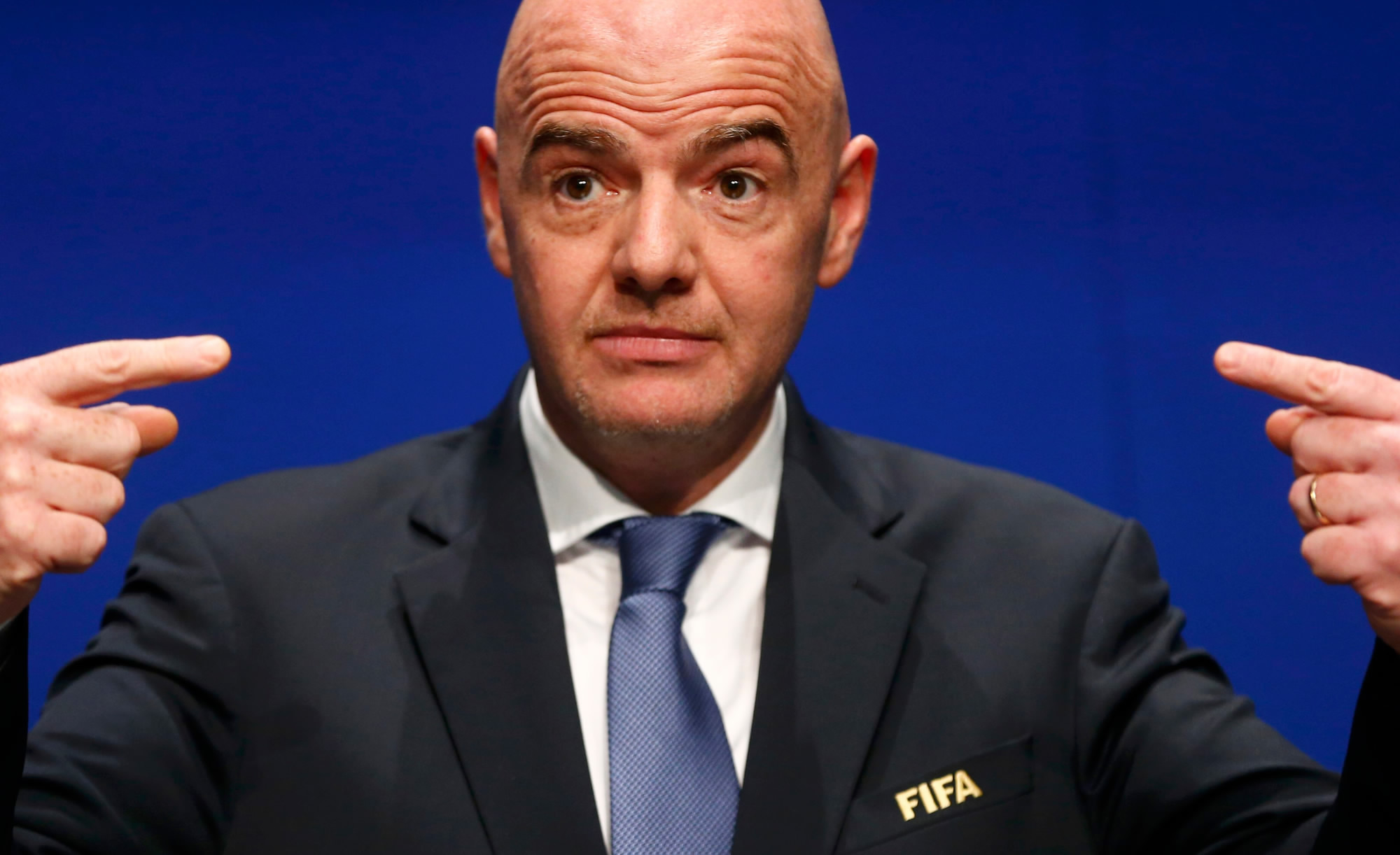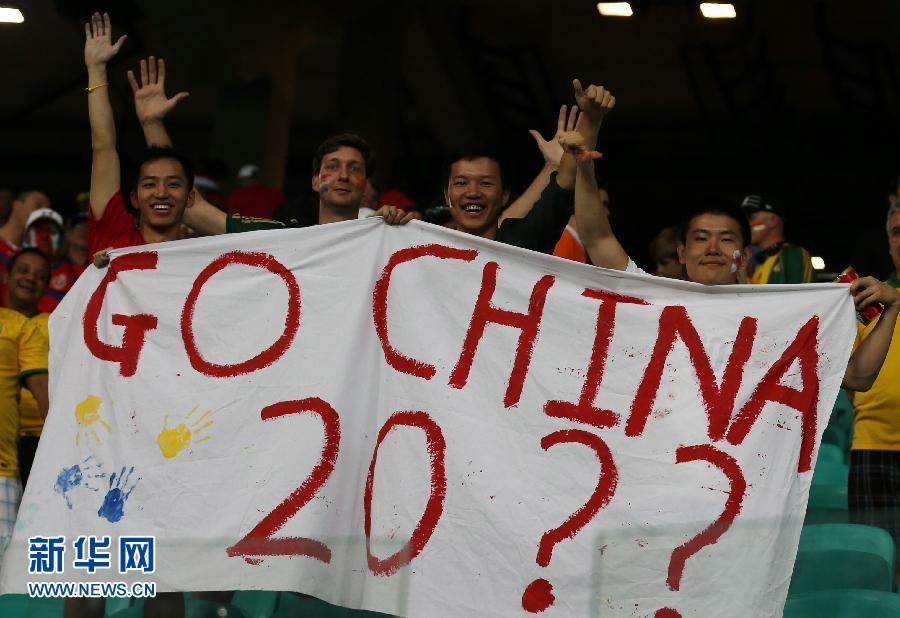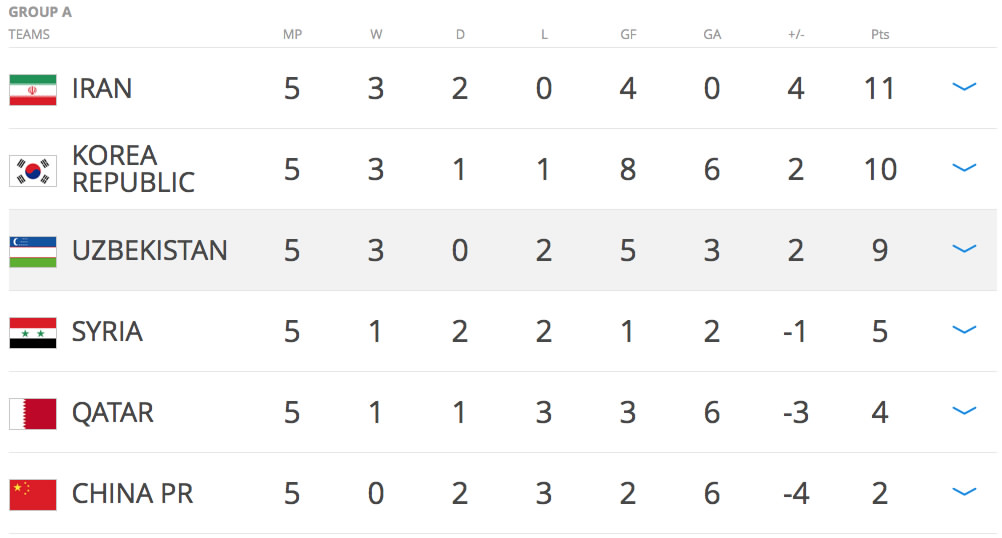The FIFA council confirmed on Tuesday its decision to approve the expansion of the current 32-team World Cup tournament format to include another 16 teams in 2026. The controversial move is being viewed in China as a possible boost to the country's chances of qualifying for a tournament in the near future, and even hosting the competition.

FIFA announces the decision on its Twitter account
The expansion will give more countries a chance to participate in the tournament, which means more games to sell and more fans to engage, said Gianni Infantino, the current FIFA president who had promised the expansion during his election campaign. More importantly, it is predicted that the enlarged tournament will bring an additional 1 billion US dollars in revenue in television, sponsorship and ticketing deals compared to next year’s tournament in Russia. Potential profits could increase by approximately 640 million US dollars, said the Associated Press citing a FIFA internal calculation.

FIFA President Gianni Infantino addresses a news conference after the Council meeting / CFP PHOTO
While the expansion has been widely applauded by the Asian Football Confederation (AFC) and Confederation of African Football (CAF), opposition to the plan mainly came from Europe's UEFA, which has long benefited from a large share of automatic places in the tournament. Voices within UEFA expressed doubts over the length of the tournament, over fears that the winning teams face exhaustion on their routes to the final stages, degrading the quality of the football on show.
The European Club Association, a body that looks to represent the interests of UEFA member nations, expressed its concern that too many games may risk sacrificing the fitness of players. Reinhard Grindel, president of the German Football Association, said that the overall quality of play would be diluted, and that more games could lead to possible conflicts between clubs and national teams.

FIFA World Cup trophy /CFP PHOTO
FIFA brushed aside those concerns, saying that although the overall number of games played will increase from 64 to 80, most teams will play no more than three games and the four semi-finalists will play no more than seven games, the same amount currently played in the 32-team set up. Under the new system, the first stage would consist of 16 groups of three teams, two of which will enter the second round: a knock-out competition between the remaining 32 teams. It also guaranteed that the tournament would be completed within the same duration as current competitions, of 32 days.

Picture from Xinhua.com
It has yet not been determined how the 48 slots in the tournament would be allocated between the six continental confederations, but Chinese football fans are already wondering whether the new format will favor their country. Under the current system, only 4.5 of the 32 slots are allocated to Asian countries. It is assumed that the new format would increase that figure to 7, or even 8.5, significantly boosting China’s chances of making it to another World Cup. However, most Chinese netizens remain pessimistic about their chances despite FIFA's new format, considering that China remains rooted to the bottom of qualifying group A, behind five other teams in contention for three places at the 2018 World Cup in Russia. Iran and Korea Republic have both already qualified from the group.

Group A as it stands in the Asian Football Confederation's third qualifying round/ Screenshot from Fifa.com
Even if the current standard of China's football does not inspire much optimism for fans, the new format may indeed favor China’s chances of hosting a future FIFA tournament over tiny countries like controversial 2022 host Qatar, as the competition's increased scale presents new logistical challenges for host nations. It is estimated that at least a dozen stadiums will be required to accommodate the 16 additional teams, which will also need extra training grounds and other facilities.









